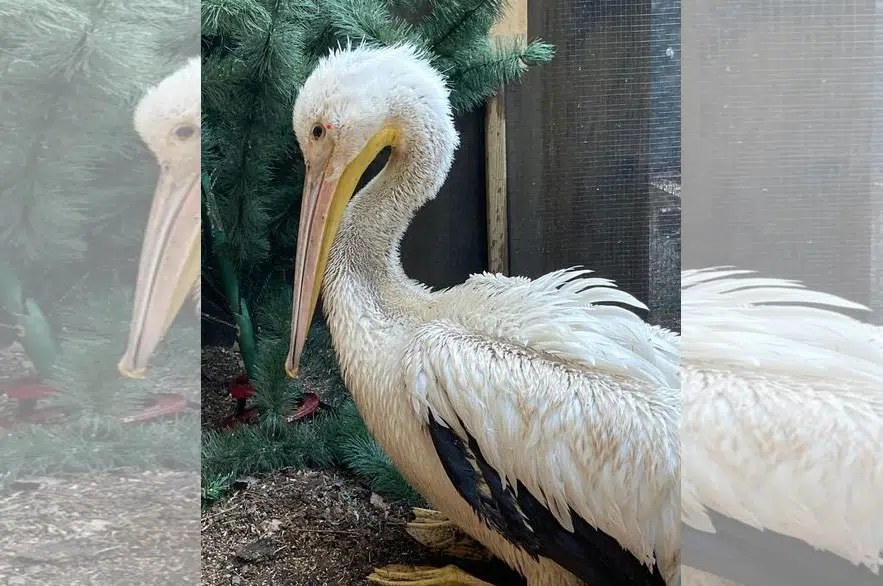A Saskatoon animal rehabilitation centre is winging it after receiving an influx of injured pelicans.
Jan Shadick, executive director of Living Sky Wildlife Rehabilitation (LSWR) in Saskatoon, said she’s never seen the organization receive this many pelicans to care for at once.
The organization is asking for help feeding the hungry flock.
She said that in about a week, the organization has received seven of the huge birds into its care.
“I have no idea what’s happening in 2023,” Shadick said, noting Living Sky usually only welcomes one pelican every four or five years.
“Suffice it to say, it’s been an insane pelican week,” Shadick said.
Some of the birds came to LSWR incredibly thin, only about half their typical body weight. Only four pelicans have survived their injuries or illnesses.
“By the time a pelican actually lets a human walk up to it without flying away or trying to escape, it’s in pretty rough shape,” Shadick explained.
The pelicans were named after the areas of Saskatchewan they came to the centre from. Currently, LSWR is caring for Kelvin from Kelvington, Martin from Martensville, Ellie from Elbow and Harley, who was found on a Saskatoon bridge.
Each bird is unique, Shadick explained, but the organization’s staff is aided in identifying the birds by coloured bands placed on the legs of each pelican.
One of the pelicans is still receiving critical care formula for food, but the other three have been weaned off the formula and have graduated to eating fish.
Shadick said one of the pelicans, Martin, came to them well-fed from a pond stocked with trout. She said her staff calls him “Martin the mentor,” for showing and encouraging the other pelicans to eat fish along with him.
“It reminded them that they probably should be eating fish instead of this very expensive critical care that we’ve been tubing them,” Shadick said.
“Now, thankfully, they’re all eating fish, except we need, basically, to buy out the grocery stores.”
A monetary donation earlier this week meant Shadick was able to visit a grocery store and buy some more fish for the pelicans – she recommended round scad, which are perfectly sized at about six-to-eight inches long and under two inches wide, or small trout as an alternative.
“They’re eating a lot! They’re huge birds,” Shadick said.
Shadick said she doesn’t yet know how long the pelicans will be with the rescue organization. One pelican that LSWR previously cared for stayed for a couple of months until it learned to fly and was released.
Hoping the pelicans’ stay will only last a few weeks, Shadick also said avian influenza restrictions mean veterinary visits cannot happen as quickly as usual at this time. She said it could take longer for the pelicans to receive care as a result.
Shadick said her organization takes in more than 2,000 animals a year, but estimated that the group is already well over that number for 2023.
Two porcupines, a couple of great-horned owls and Oscar the otter will be wintering at the centre – with Oscar requiring specialized housing that the organization is still working on.
“Any kind of support, donations are always appreciated,” Shadick said.







